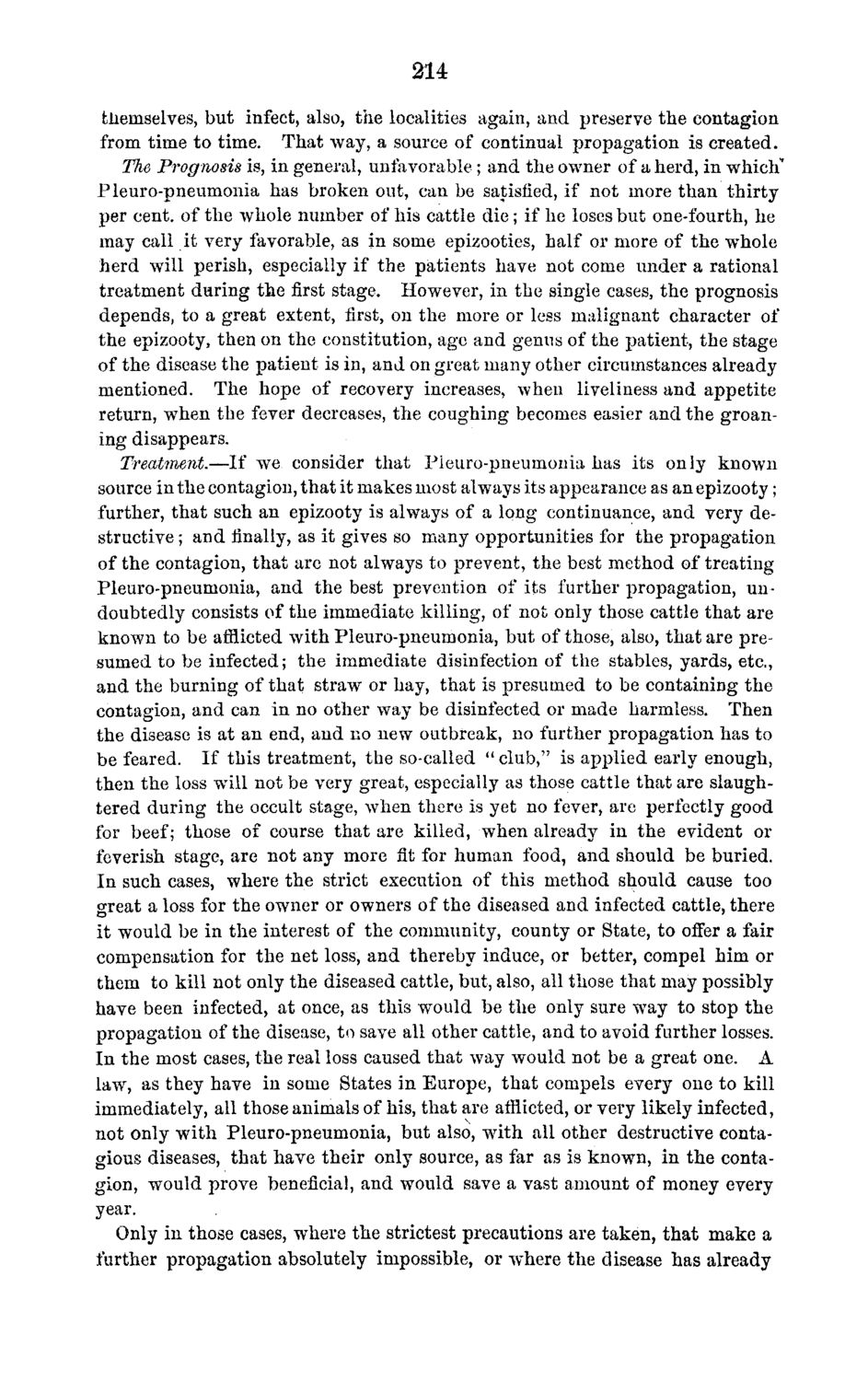| |
| |
Caption: Board of Trustees Minutes - 1870
This is a reduced-resolution page image for fast online browsing.

EXTRACTED TEXT FROM PAGE:
214 tliemselves, but infect, also, the localities again, and preserve the contagion from time to time. That way, a source of continual propagation is created. The Prognosis is, in general, unfavorable ; and the owner of a herd, in which* Pleuro-pneumonia has broken out, can be satisfied, if not more than thirty per cent, of the whole number of his cattle die; if he loses but one-fourth, he may call it very favorable, as in some epizootics, half or more of the whole herd will perish, especially if the patients have not come under a rational treatment during the first stage. However, in the single cases, the prognosis depends, to a great extent, first, on the more or less malignant character of the epizooty, then on the constitution, age and genus of the patient, the stage of the disease the patient is in, and on great many other circumstances already mentioned. The hope of recovery increases, when liveliness and appetite return, when the fever decreases, the coughing becomes easier and the groaning disappears. Treatment.—If we consider that Pieuro-pneurnonia has its only known source in the contagion, that it makes most always its appearance as an epizooty; further, that such an epizooty is always of a long continuance, and very destructive ; and finally, as it gives so many opportunities for the propagation of the contagion, that arc not always to prevent, the best method of treating Pleuro-pneumonia, and the best prevention of its further propagation, undoubtedly consists of the immediate killing, of not only those cattle that are known to be afflicted with Pleuro-pneumonia, but of those, also, that are presumed to be infected; the immediate disinfection of the stables, yards, etc., and the burning of that straw or hay, that is presumed to be containing the contagion, and can in no other way be disinfected or made harmless. Then the disease is at an end, and no new outbreak, no further propagation has to be feared. If this treatment, the so-called " club," is applied early enough, then the loss will not be very great, especially as those cattle that are slaughtered during the occult stage, when there is yet no fever, are perfectly good for beef; those of course that are killed, when already in the evident or feverish stage, are not any more fit for human food, and should be buried. In such cases, where the strict execution of this method should cause too great a loss for the owner or owners of the diseased and infected cattle, there it would be in the interest of the community, county or State, to offer a fair compensation for the net loss, and thereby induce, or better, compel him or them to kill not only the diseased cattle, but, also, all those that may possibly have been infected, at once, as this would be the only sure way to stop the propagation of the disease, to save all other cattle, and to avoid further losses. In the most cases, the real loss caused that way would not be a great one. A law, as they have in some States in Europe, that compels every one to kill immediately, all those animals of his, that are afflicted, or very likely infected, not only with Pleuro-pneumonia, but also, with all other destructive contagious diseases, that have their only source, as far as is known, in the contagion, would prove beneficial, and would save a vast amount of money every year. Only in those cases, where the strictest precautions are taken, that make a further propagation absolutely impossible, or where the disease has already
| |